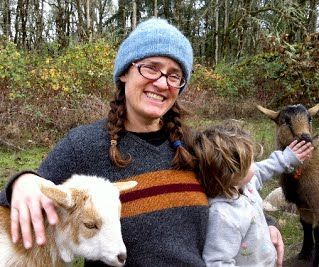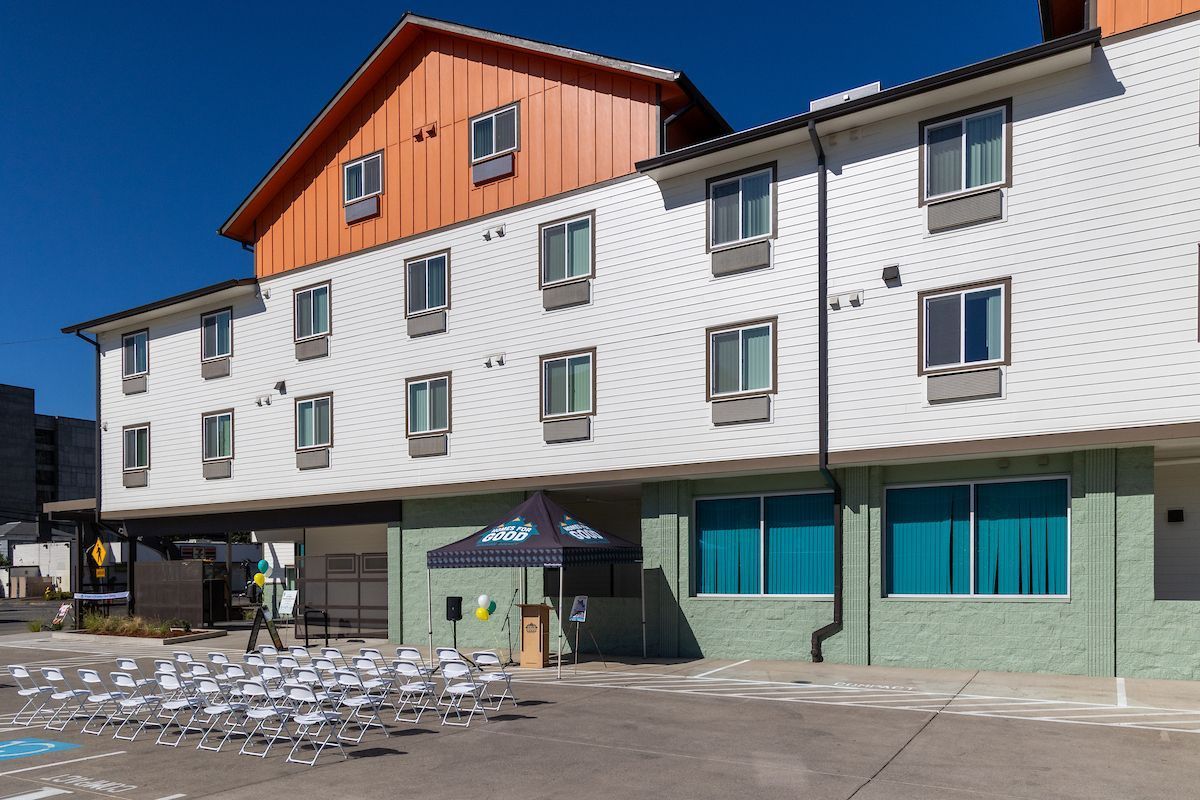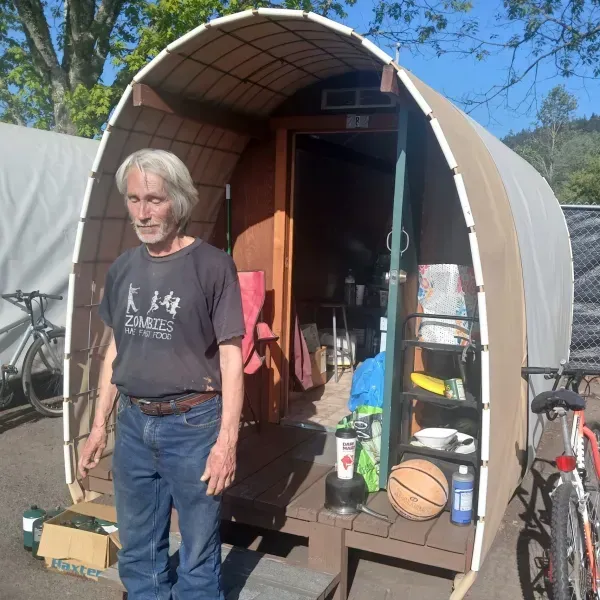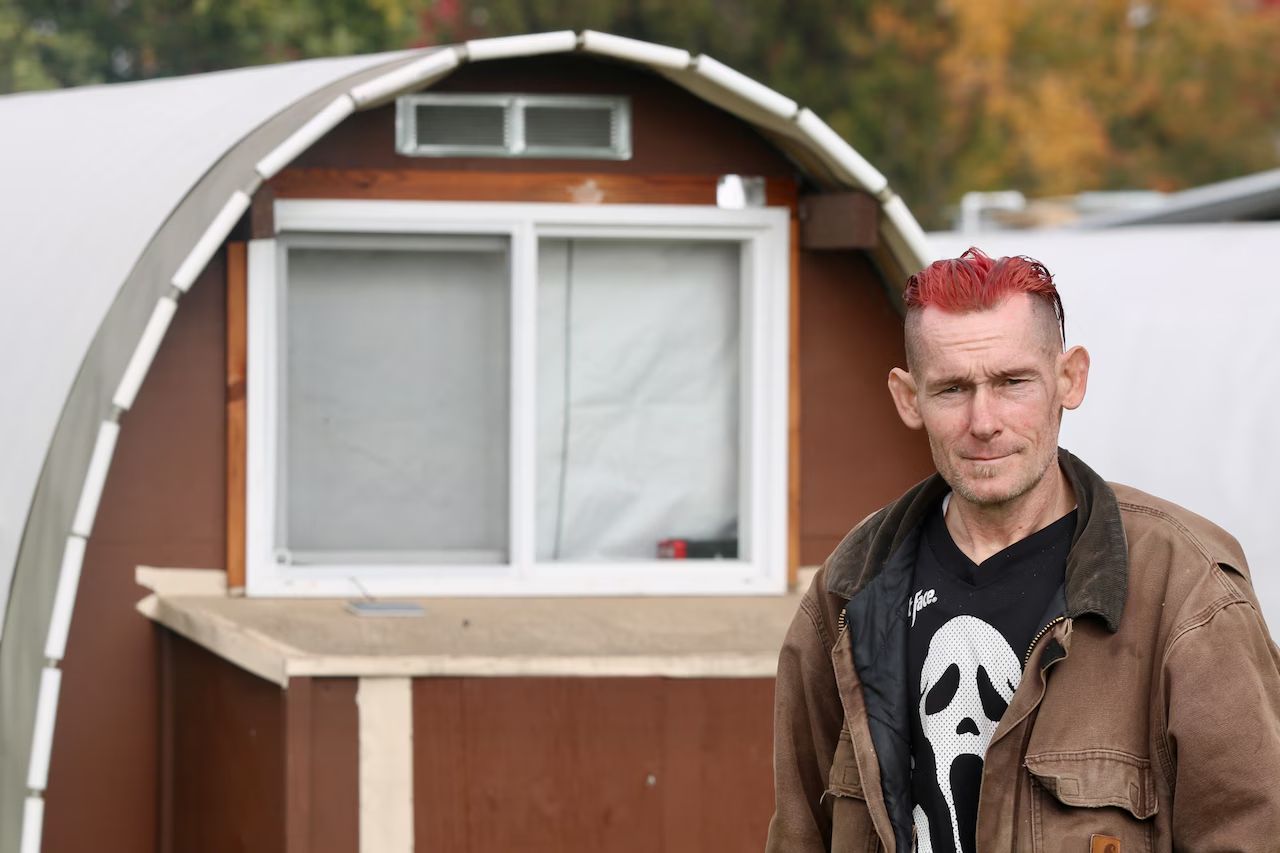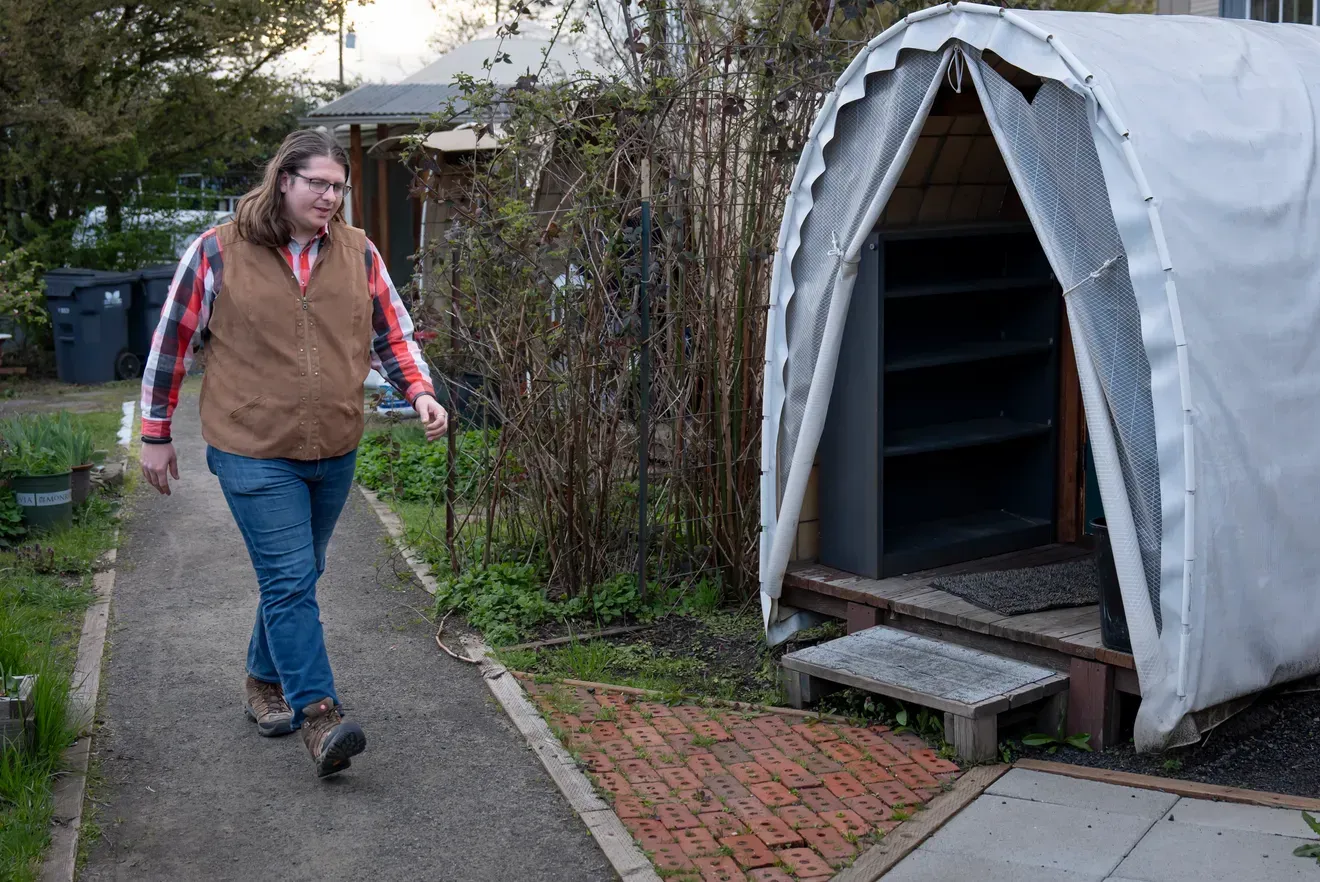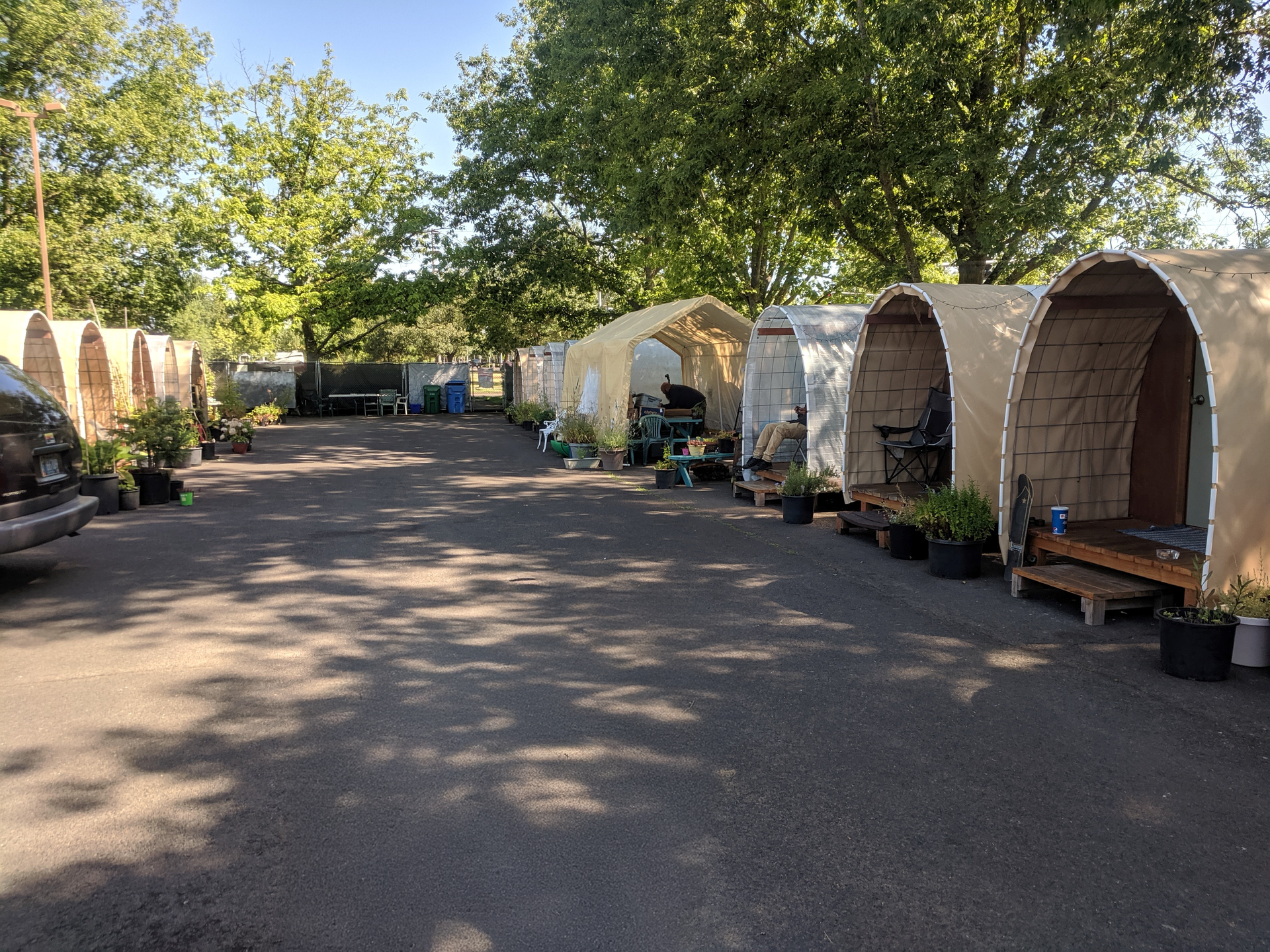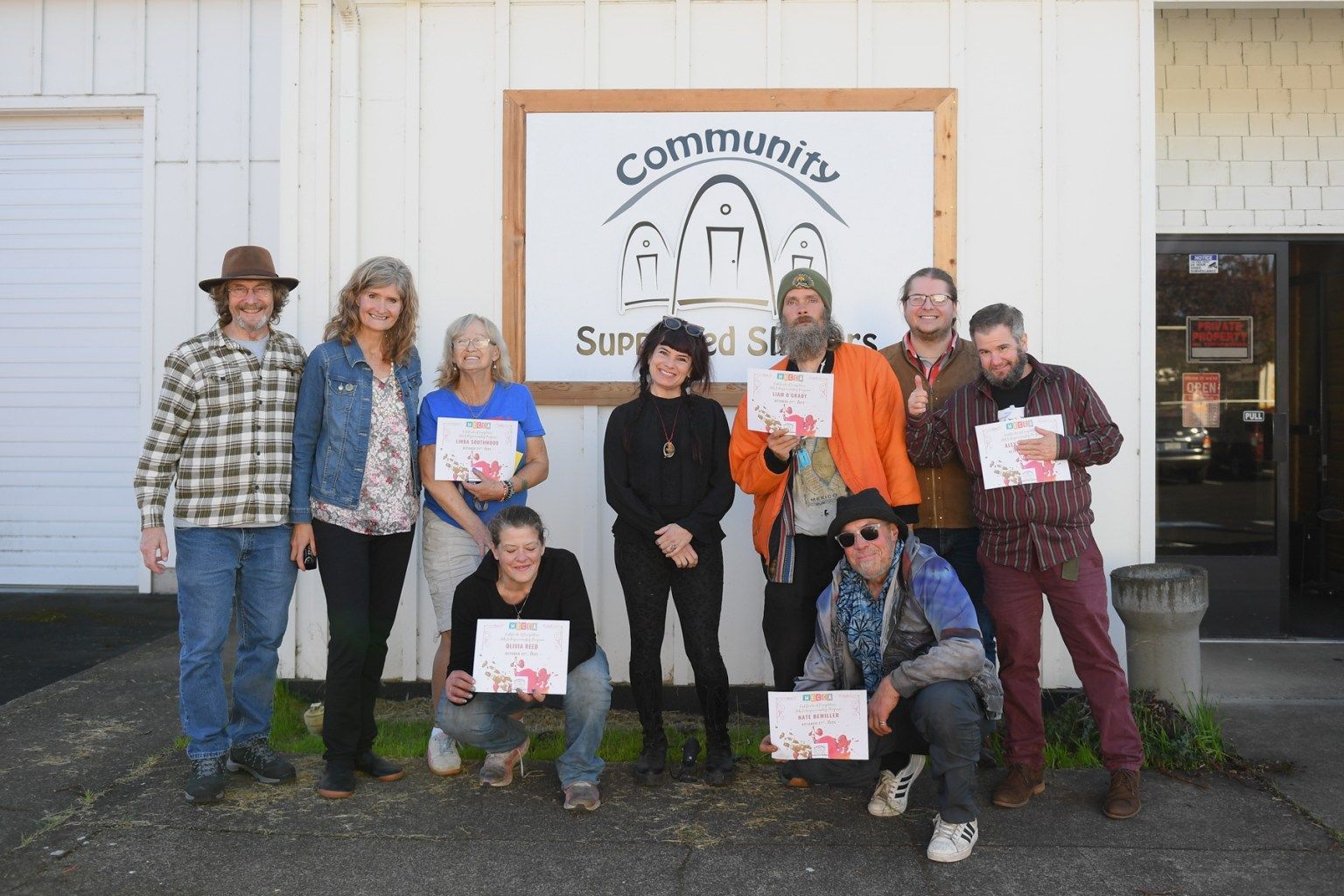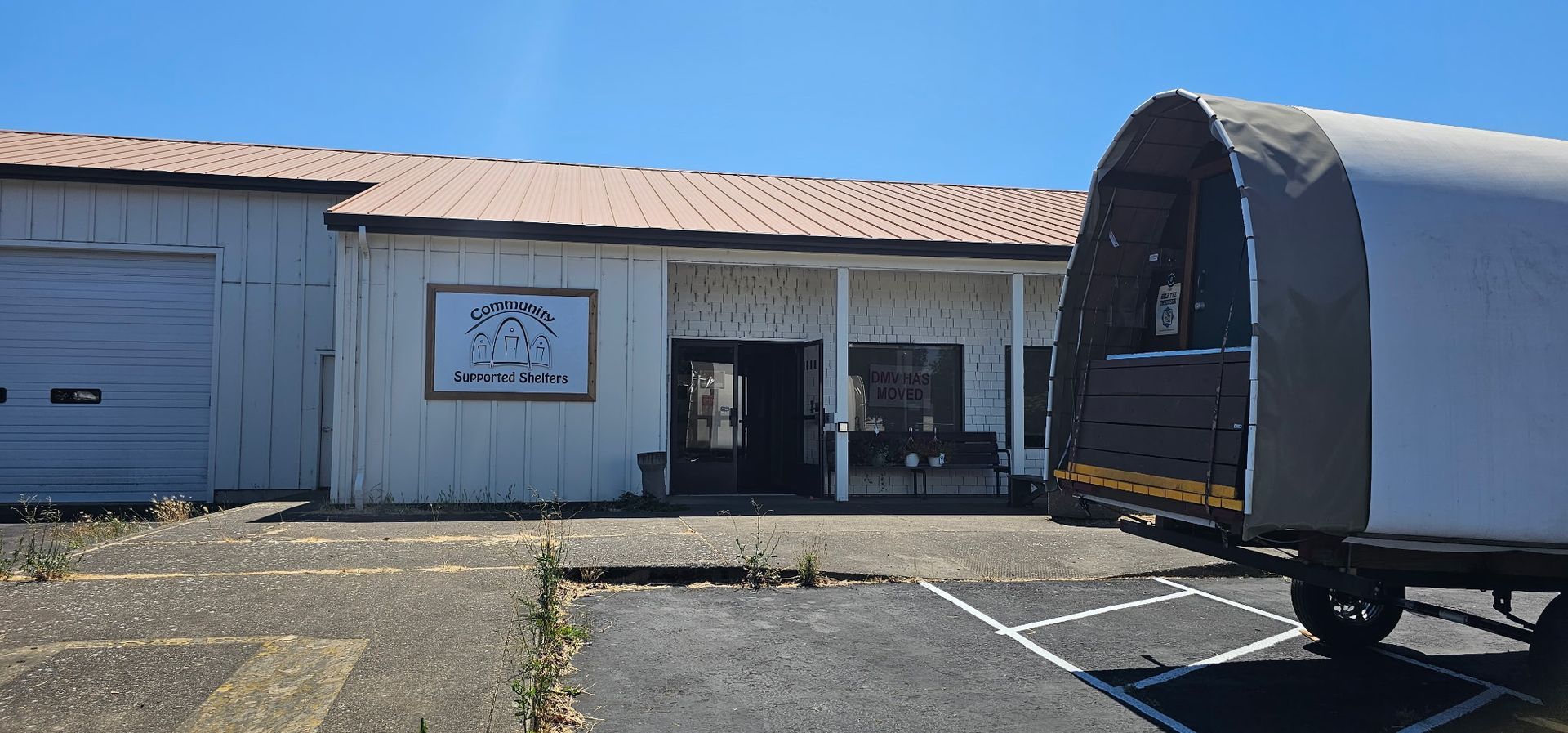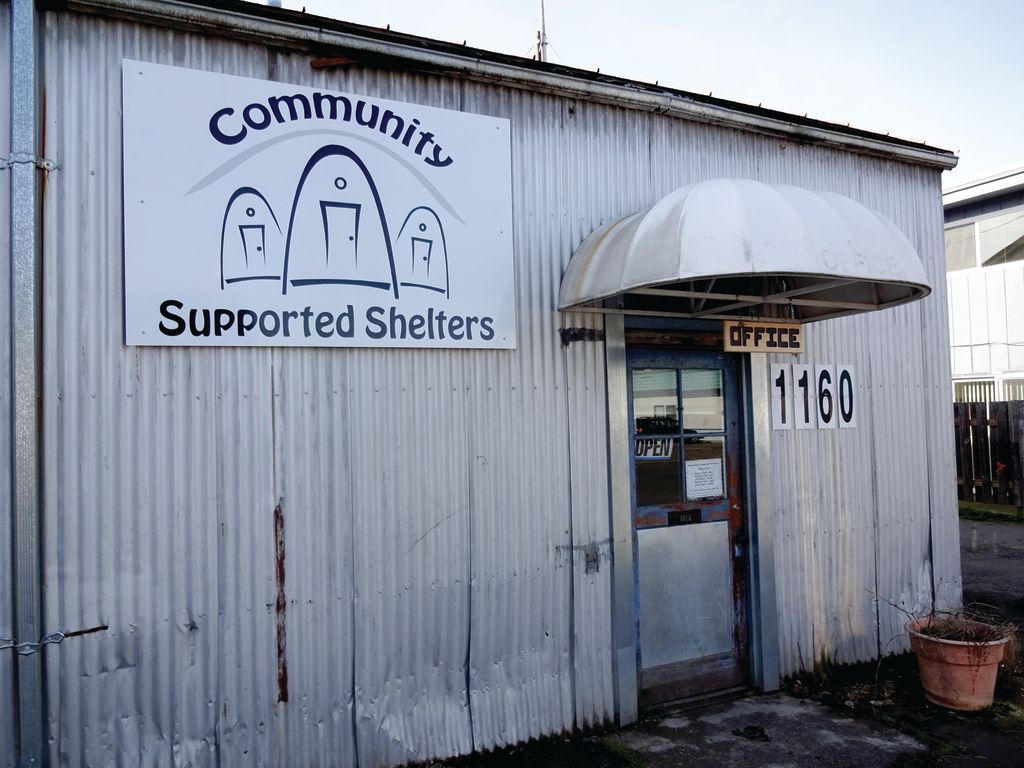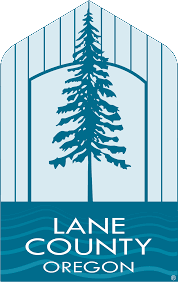I joined the board six or seven months ago. Erik and Fay started out as this scrappy team, this dynamic duo, having this amazing vision, so the board is trying to get them up to snuff as far as being a nonprofit organization and all that goes with that and the fund-raising work—the not-very-glamorous stuff. We’ve got a pretty good team. I try to use my connections with the church communities to get more spots for Huts to be placed and to help to get the word out there about the organization.
You just say, “You know those little Conestoga Huts” and everybody says, “Oh yeah, I’ve seen that. I saw one at the corner of such and such.” People really are waking up to what we’re doing by seeing Huts around the city.
People have had really good experiences with the Huts, like at our church. We have three people who live in the Huts and two of them are huge members of the church—and we’re a seriously no-pressure kind of place. It’s not a condition of living there, but they’ve become part of the family, which is pretty amazing. One of them just was “received” at the church, which is kind of like being confirmed. Another is one of our best readers and is now a pledging member, which is a big deal for him because he has had a lot of struggles and for him to put that on some sort of priority list for himself is cool to see.
They’ve breathed life into this little garden in the back of the church and now all three of them are out there slogging dirt and people are bringing plants for them to plant. It’s just great.
People considering hosting Huts are sometimes concerned about things that are not fun and exciting, like liability—if someone was to get hurt and things like that. Folks have concerns about some of the issues that can arise, which could rise anywhere obviously, like drugs and alcohol on church property. It’s a different thing than at a private residence.
But anytime I ever talk to anyone who’s considering having a Hut in their parking lot, we talk more about all of the bonuses. The security is fantastic. We used to have real problems in our parking lot because it’s very secluded with lots of trees. And the church is a very empty building a lot of the time. Folks would be having parties over there and we’d find needles around, where the kids are playing. And now nothing. It’s more secure now because they are just a presence.
It’s amazing what CSS has accomplished so far. I’ve never seen anybody be so focused and work so quickly and so efficiently, starting from those little fledgling Huts in the parking lots. In a year and a half, a very short amount of time, they’ve gone from this teeny little idea to ramping up to this big fundraising sale [on July 19], which I hope is going to get them to a place where they can really not worry quite so much.
I work a lot in the homeless activism communities and I think folks can get distracted by the big issue of the moment. I’ve watched Erik and Fay though all of that, through all of the Whoville situation and all these things going on in the city and they’re just like, “This is our mission, this is what we’re doing” and they just continuously stay focused.
I think managing the rest stop camps was a natural next step for them. I don’t want to speak for them, but I would say that when they were just doing the building, they were meeting more and more of the residents of the Huts and getting more and more intimately involved, and started to think, “We have so many other things that we can be offering out here to the world.” But, with the city not putting any money towards the camps—they’re putting their approval towards them but no money—I’d like there to be more money to support that work.
We started building and placing the Huts, and every quarter things got a little more complex. Now there’s a board and a staff person and nonprofit status on the horizon and the camps and meetings with the mayor. Every step has just gotten more complicated. When they were just doing Hut placements here and there, I think they could do it by kind of rubbing pennies together and scrapping it all out but now they’ve got people who are really relying on a steady income stream. The porta-potties need to be paid for and everything maintained. So the success of this sale is pretty critical. I mean Erik doesn’t even get paid. It’s too much.
But all these wonderful blessings are always raining in. A Mazda Miata was donated, and we’re going to sell raffle tickets for that. It’s worth $10,000 —so things like that happen.
In the next year, I would really like to see a budget that has the rest stops completely covered, to have Erik on the payroll and actually getting paid for all of the work he does, and to get back to building Huts and placing more of them in the city. We’ve also talked a lot about pushing more education in the community. With Erik and Fay’s experience trying to get these camps started, they are running into a lot of ignorance, a lot of things that people don’t understand and some very valid concerns, too. It’s a very polarized issue. It’s either very un-PC to say anything negative about homeless people or it’s totally an expression of this ignorance. We need some really good conversation, more building community with other homeless activists, and to expand all of our consciousness because people are really interested in grappling with homelessness.
The city, I think, has moved at lightning speed on so many of these things. Coming from Massachusetts—where I would never see an idea like Opportunity Village go from inception to completion in my lifetime—I got whiplash it happened so fast here. Are they going to fix homelessness in one year? Of course not. This is a societal and cultural problem. No town on its own is going to be able to fix it, but I’d say this town deserves some real kudos for the work they’ve done.
Long term, I would love to see more rest stops smattered all around the city, which I think would help normalize a more village-minded approach. People are terribly alone, and even sometimes when they are all together, they are ignored and not seen. Something that’s come out of Opportunity Village and the rest stops is a really positive banding together and creation of these micro-communities that allow these people to shine. All the volunteer work that folks from the camps are doing in the parks is so amazing.
Everyone really wants to be of some purpose. Maybe they’ve been blind-sided by drugs or alcohol or mental illness or something but if we can help to get underneath that and get to that person, we see that folks just want something to do. So I would love to just duplicate and duplicate and duplicate this over and over again until it’s just a norm in our society, where people are not hiding off in the woods and separate and alone—ever.
I have a lot and there’s so many people that I see everyday that just have nothing. I have a home. I have a farm. I have a family. I have the luxury of home schooling my kids. When we opened up the parking lot at our church to these residents, I saw not only was it feeding me—I got to make some really deep connections with the folks who live there that will be maintained for a lifetime—but I’ve also seen the folks in my church have all sorts of interesting experiences, many of whom would never have had a conversation with one of these folks for whatever reason. We’ve got little old church ladies pulling up a plastic chair outside a Hut and gabbing away with the homeless guy in the parking lot. And that kind of makes my day to see that happening.
I hear from people in the neighborhood who are really proud that those Huts are there. They’ve never set foot in our church, never even come by, but they just feel so good that they are in their neighborhood.
And my kids . . . they make stuff for Mark, who’s one of the guys in the Huts. He’s their favorite. He always finds little cool pinecones and cool stones and gives them little things like that.. They’re painting these flowerpots for him and they’ve dug up these plants that they’re going to give him on Sunday.
It’s good for them to ask all those hard questions about why is that person sitting there on the street corner. I really try to help them see that the person on the street asking for our help deserves to be acknowledged—and not in some soul-killing way for a seven year old. I just talk about the super basic stuff that we are all taught as children, yet seem to forget as we age: treat everyone with kindness and respect and share what we have. I think about what a confusing message it gives my children, any children, when car after car drives by, when people walk by and ignore them, especially when at home, I try to teach them to show compassion and concern if someone is hurt or upset, and to not exclude anyone, even those who might be harder to get along with.
People in the community can always help by donating money. Anybody who goes to church or lives near one or near a business can talk to someone and ask if they would ever consider hosting at least one Hut. Folks could get their book group or Rotary group or whatever to sponsor porta-potties for a month or a quarter or a year and know that it has the most direct impact on people.
Roll down your window and say hello to someone who is homeless, even if you don’t want to give money or you don’t have any money, just connect in some way. That creates a big change in itself.
We’re really in hot pursuit of a few new board members who have the kinds of skill to secure some grant funding, and folks who just have a lot of connections in the community and who can walk the talk as far as the fundraising world goes. Most of the folks that are on the board at this moment have other skills, so it will be really good to try to mature in that way—and to admit that money does, in fact, need to happen big time.
I am in full support of what Erik and Fay and Community Supported Shelters is up to. I am very proud of them and proud to know them.


